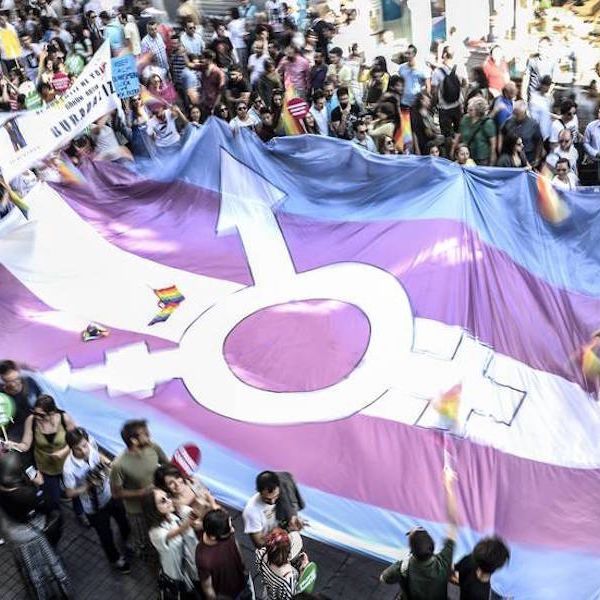In light of recent events, I thought it would be a great idea to write about LGBT+ terms and what they mean. This is especially important when thinking about the people in your life: family, friends, co-workers. Knowing what makes up their identities will only strengthen your relationships with them. I myself have only just been introduced to a lot of the identities, and I still come across people who are able to tell me more information than I already knew.
I would also like to forewarn my readers that this is not a comprehensive list by any means. It is also very important to not press any terms onto the people you know. Wait for them to tell you, in their own time, or make sure that you are using the right terms.
So, without further ado, I am going to go down a list terms, which will hopefully help people reading this article.
1. Lesbian
Lesbians, if anyone does not know, are women who are attracted to other women.
2. Gay
Men, who are attracted to other men.
(Can also be used as a general term for anyone who identifies in the spectrum).
3. Bisexual
A person who is attracted to both men and women. However, this does not mean that a person is attracted to both men and women equally. A bisexual may like men more, or they may like women more. Personal preference.
4. Transgender
Transgender is an umbrella term for those who do not identify as the gender they were born with, or within the gender binary of strictly male or female. There will be terms later for more specific gender identities that fall on the spectra of gender.
It is also important to know that some people may identify as transsexual, but to others, being called transsexual is derogatory. It is always important to ask what term they would prefer.
FTM: an abbreviation for transgender people who were born female, but identify as male or masculine.
MTF: an abbreviation for transgender people who were born male, but identify as female or feminine.
Asking what a person's pronouns are, or there preferred name, (as long as they are okay with that), would be a great idea.
5. Queer
This term can be used for people who do not identify as gay, lesbian, bisexual, pansexual, transgender, etc. But this is totally up to the person, and their choice.
Also, be aware that queer is used as a derogatory term for any type of gay person, and unless the person says to identify them as Queer, then do not call them that.
6. Questioning
A term for those who are questioning their sexual and/or gender identity.
7. Intersex
A term for those who were born with anatomy or chromosomes that are not "male" or "female". (Used to be the term "hermaphrodite", but that is no longer an acceptable term).
8. Asexual
A term for those who do not have sexual attraction. This does not mean they can't have sex. Some people just don't have sexual attraction. There are asexuals who want to have sex and those that do not.
9. Agender
Someone who does not identify within the binary of male and female gender. They may use other pronouns than male or female pronouns to identify themselves. Some people use "they/them", but they are also websites that help people find pronouns to identify themselves.
10. Aromantic
A term for those who do not have romantic attraction. This does not mean they can't have have relationships like partners. Some people just don't have romantic attraction. There are aromantics who want to have relationships and those that do not. They can be attracted to people sensually or aesthetically.
11. Pansexual
The prefix "pan" literally means all. So a pansexual is someone who can feel any type of attraction for someone of any gender. Since there are more genders than male and female. A pansexual, just like a bisexual, can be more attracted to certain genders than others. The proportion of attractions is not always equal.
Also important is recognizing that pansexual are not another sub-sect of bisexuals. They are an identity in their own right and should be treated as such.
Before I end this article, I would just like to say that any of the sexual and gender identities can work together. A person who identifies as bisexual can also be agender, or transgender.
The most important part is recognizing their identities in general. We live in a society where everyone is straight until proven gay, or a binary gender until proven otherwise.
Rather than letting this stand, we should be more accepting of those who do identify the same as us. We should be aware of people's differences and knowing the terms and when to use them is a good way to start.





















